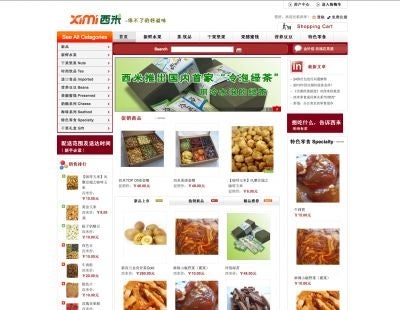Your support helps us to tell the story
From reproductive rights to climate change to Big Tech, The Independent is on the ground when the story is developing. Whether it's investigating the financials of Elon Musk's pro-Trump PAC or producing our latest documentary, 'The A Word', which shines a light on the American women fighting for reproductive rights, we know how important it is to parse out the facts from the messaging.
At such a critical moment in US history, we need reporters on the ground. Your donation allows us to keep sending journalists to speak to both sides of the story.
The Independent is trusted by Americans across the entire political spectrum. And unlike many other quality news outlets, we choose not to lock Americans out of our reporting and analysis with paywalls. We believe quality journalism should be available to everyone, paid for by those who can afford it.
Your support makes all the difference.China's Mid-Autumn festival is traditionally a time for feasting and a new trend has emerged in the wake of this year's event - more Chinese than ever are turning to the internet when they get the munchies.
With the festival ending on September 23, figures have shown that online sales on the traditional mooncake snack has this year skyrocketed, with Taobao.com - the country's largest online portal - offering 20 different brands and seeing sales soar towards the 10 million yuan (one million euro) mark.
And the numbers are set to increase, according to the people at Dangdang.com, the first Chinese site to start selling food online. Since establishing the service in 2008, the company has seen the percentage of foodstuffs sold grow to 10 percent of its output - and they are expecting the figure to continue to rise.
China registered total online spending of 96 billion yuan (10 billion euro) in the first quarter of the year.
Meanwhile a spokesman for Amazon.cn - the Chinese branch of US-based Amazon retail network - told the China Daily newspaper they predicted it was "only a matter of time'' before online food sales matched offline sales in China - and that the company had expanded its service to offer 8,000 different types of foods.
For the moment, though, it seems snacks such as mooncakes are proving the most popular treats. Ximi.com offers a specific snack service for white collar workers in Beijing - traditional items such as dried fish and squid and preserved fruits which are not commonly available in cafes - and says it has seen growth of 100 percent in the past year. They have 400,000 registered users and offer 200 types of snacks.
Top-sellers - how China spends online: Electronics (44.2 percent); clothing (17.4 percent); jewelry (5.8 percent); personal care (4.5 percent); food (4.1 percent); maternity and childcare (3.7 percent); others (8.6 percent).
Figures supplied by the Zero2IPO Group
MS

Join our commenting forum
Join thought-provoking conversations, follow other Independent readers and see their replies
Comments